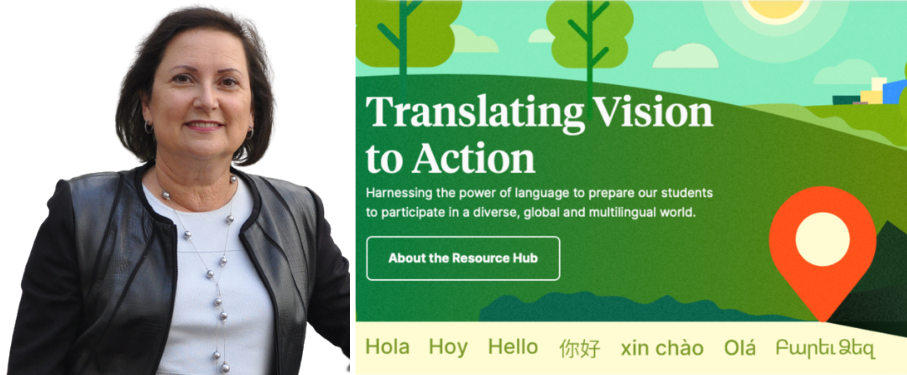
Led by Dr. Magaly Lavadenz, the Center for Equity for English Learners has created online tools for school districts nationwide
When the pandemic forced thousands of schools to pivot to remote learning in March, Magaly Lavadenz, Ph.D., executive director of SOE’s Center for Equity for English Learners (CEEL), knew that English learners (EL) and their communities would need support to navigate the changes. Over the past several months, she’s led the effort at CEEL to develop remote-learning resources for teachers, administrators, and parents that are guided by its Equitable Distance Learning for English Learners Design Principles (English | español).
One of CEEL’s most influential efforts last spring was the creation and online launch of a Local Control and Accountability Plan (LCAP) toolkit for EL, and an associated webinar to train school districts on how to utilize it. “LCAPs are critical for helping districts establish goals and methods for improving student outcomes, and giving them research-based information on strategies that work in the area of EL will save time and ideally, will help them meet student achievement benchmarks more quickly,” said Lavadenz. CEEL will deliver the webinar to nearly 20 school districts across the country throughout the current academic year.
Other Covid-inspired projects that Lavadenz has overseen include the dissemination of a website called the EL Roadmap Resource Hub (in collaboration with statewide partners such as Californians Together and Ed Trust-West); a webinar series about teaching transitional kindergarten virtually (in partnership with Early Edge); and a regular e-newsletter series to its community about EL supports during Covid.
As founding executive director of CEEL, Lavadenz has long had a keen eye for the needs of English language learners and how those needs change with changes in circumstances and technology. They’re skills she honed in her previous roles as a teacher, paraprofessional, and in leadership positions at organizations such as Californians Together, California Association for Bilingual Education (CABE), the California Association for Bilingual Teacher Education, and the California Council on Teacher Education. “Although the pandemic forced all of us to quickly make changes to teaching methods for preK-12 students, becoming fluent with effective remote learning and teaching strategies will make education more equitable, both for English language learners and for all students,” she said.